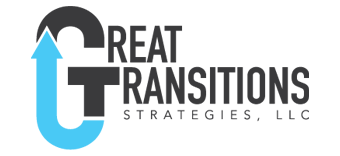How do good performers become great performers and continue to improve?
Did you ever look at those high performers around you and wonder “…how did he/she get so good and what is he/she doing to keep getting better?” Is it talent, hard work, or a combination? How can you become one of those great performers and continually improve?
The book Outliers by Malcolm Gladwell popularized the 10,000-hour rule, as the threshold of hours of practice it takes to achieve expertise. He coupled the 10,000-hour rule with talent and circumstances. His argument is that talent alone does not account for success.
However, on the practice front it is more then just 10,000 hours of experience or practice. Dr. K. Anders Ericsson a leading researcher of expert performance found that performance improvement in aspiring experts comes from “…deliberate practice – activities designed, typically by a teacher for the sole purpose of effectively improving specific aspects of an individuals performance.” [1]
Deliberate practice has three main elements. First it requires time, energy, and access to teachers, materials, and facilities. Second, the practice is not always motivating, however the individual knows it is essential to improving their performance. Lastly, deliberate practice requires significant effort and can only be sustained for limited time each day. [2] His research was with individual experts in the fields of arts, sciences, and sports.
Additional support from the science community on how to make intentional and desired changes sustainable, comes from intentional change theory. Dr. Richard Boyatzis, a prominent researcher on change theory describes it as an iterative cycle of 5 discoveries that produce the change. While in the process you discover:
- Your ideal self and a personal vision – who do I want to be?
- Your real self – who am I? My strengths and my weaknesses – where are my real self and ideal self similar and different.
- Your learning agenda – building my strengths and reducing my gaps.
- Experimentation – new behaviors, thoughts, and feelings. Practicing – building new habits through practicing to mastery.
- Resonant relationships to help support and encourage each step in the process.[3]
So how do the good become great and continue to improve. An analysis of one of those individuals will probably reveal something such as this: they set a vision, develop a plan, engage in deliberate practice, and develop resonant relationship to support them. One of those relationships is very likely a coach.
Successful athletes or artists; team members or individuals who are world-class performers all depend on coaches to reach the highest level of performance. They know they cannot do it alone. Leaders in corporations, education, and non-profits are beginning to follow the same path. They are using coaches to assist them in unlocking their full potential and continue to grow. They help make good performers – great performers.
Examine the below list and see which describes you. In each area the individuals are high performers with a desire to improve and attain a vision.
I am a Leader
I have always gravitated to leadership positions and love the challenges of leading my team. I want to ensure I am always growing as a leader, gaining new skills and getting ready for the next level.
I am a Hard Working Professional With Big Plans and Goals
I am dedicated to my professional growth. I have made steady progress in my field and am recognized as being in the top group of my peers. I want to understand some of the choices I have in front of me, set the path for my career, and continue to grow as a professional
I am a Veteran Transitioning to the Civilian Workforce
I am leaving the military after a successful career and want to make a smooth transition. I am told I have a lot of options but feel like I am just looking at job postings. I want to transition into a field that will allow me to use my talents and make a difference.
I am Transitioning – Geographic Relocation, Promotion, New Job
I am very excited about this upcoming move it is going to be great. This is just what I was working for. Now I just need to make sure I make the most out of this opportunity.
I am an Executive Leading My Corporation/Nonprofit to be the Best in Our Field
I love running this organization, we have a solid vision and have made steady progress in growing and fulfilling our mission. I want to take us to the next level to put us at the top of our field.
I am an Individual Who Wants to Get the Most Out of My Strengths and Talents
I am very happy with my family life and my career. I want to continue to grow and make a difference. How can I make the most of my skills and talents to have a greater impact in my work or other activities?
I am a Student Designing My Future
I love being a student, particularly exploring all of the opportunities I have available to me. There are so many choices such as; summer programs, study abroad, electives, internships, and student organizations. How can I get the most out of my time at school so I am well prepared for what is next.
I am a Member/Leader of a Successful Team
As a team we all work well together and have done well with meeting all of our requirements. How can we improve our performance to make us the top performers in the company?
If you see yourself in one of the descriptions and have the desire to make deliberate and sustainable changes, consider a coach. Great Transitions Strategies works with high performing individuals and teams to reach the next level of performance. The coaching relationship is built around an in-depth partnership that enables you to set a path of continual progress. Your coach will assist you in defining your vision, and then empower you to discover and utilize your strengths and talents to achieve that vision. Visit www.greattransitionsstrategies.com and make an appointment for an introductory coaching session.
[1] Ericsson, K. Anders. “Expertise”. Psy.fsu.edu. N.p., 2000. Web. 16 May 2016.
[2] Ericsson, K. Anders, Ralf T. Krampe, and Clemens Tesch-Römer. “The Role Of Deliberate Practice In The Acquisition Of Expert Performance.”. Psychological Review 100.3 (1993): 363-406. Web.
[3] Boyatzis, Richard E. “An Overview Of Intentional Change From A Complexity Perspective”. Journal of Mgmt Development 25.7 (2006): 607-623. Web.












